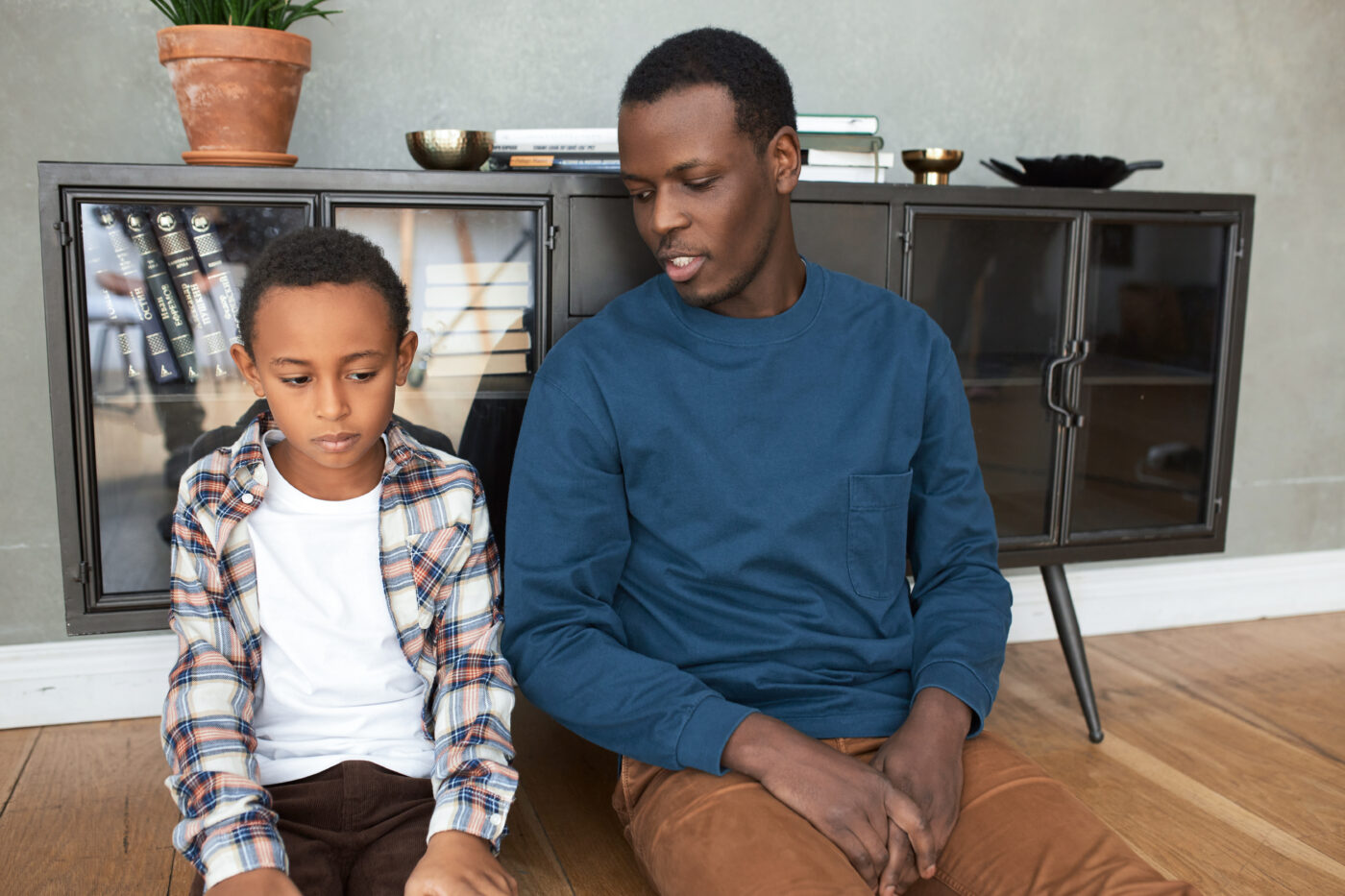“I’m sorry, Daddy,” my son whimpered. As I was about to respond, something caught my tongue and caused me to pause and evaluate my response to his apology before replying. Initially, I wanted to say that “it’s OK” and move on. However, it wasn’t OK, and telling him that would miscommunicate the initial reprimand.
Apologies are more than a request to move on or closure on a disagreement. They provide an opportunity to give our kids a broader understanding of their actions and solidify the boundaries we’ve created. In thinking about how to respond to an apology, there are good responses and bad ones. Often, our response to an apology can hurt the situation more than help. Here are 6 responses that ruin an apology.
1. I told you that would happen.
“I told you so” can be a satisfying statement to let roll off our tongue but if we put ourselves on the other side of that statement, it’s the last thing we want to hear after a mistake. When our kids are ready to make an apology, they’re in a vulnerable position and our response will dictate their future willingness to open up to us. Provide a place for your kids to feel heard and understood. That will likely make you a go-to person when they need to open up about other mistakes.
Instead of “I told you so,” you can respond with: “What did you learn?”
2. You better never do that again.
Instilling fear can be a good short-term solution to get our kids to listen well. However, if we sit back and think about the future, our goal isn’t to create a short-term, obedient child, but a long-term, responsible adult. Find a response that fosters a strong relationship and shows your desire to help them toward a solution.
Instead of “you better never do that again,” you can respond with: “How can we make sure you don’t make the same mistake again?”
3. You’re not actually sorry.
A fake apology may be worse than no apology, but we can’t be the police of authenticity. Our kids are smart and learn what to say to get themselves off the hook. If you notice there’s not a real sense of remorse, take some more time to dig into the situation with them.
Instead of “you’re not actually sorry,” you can respond with: “What about that situation made you want to apologize?”
4. It’s OK.
Just like in the introduction story, it wasn’t OK. As I was trying to teach my son what was acceptable and unacceptable, I couldn’t contradict myself by now telling him this behavior was OK. Our response to the apology should bridge the gap from punishment to reconciliation while maintaining the healthy boundaries we’ve created.
Instead of “it’s OK,” you can respond with: “Thank you for apologizing.”
5. I’ll remember this next time.
This is another response that can create fear. On top of that, it illustrates to our kids that we do not accept their apology. Instead of learning to settle the problems they’re facing, we’re teaching them to hold onto that anger, bitterness, or frustration. A weight none of us can bear for very long before it implodes.
Instead of “I’ll remember this next time,” you can respond with: “I believe you’ll do better next time.”
6. Now change your attitude.
If only we could all change our attitude as quickly as we do an outfit. As our kids learn to navigate emotions, their “recovery time” will be at a different pace than ours. As each kid is different, so help yours identify how to cope with these lingering emotions. For some, that could be sitting on the couch together; for others it could be some alone time.
Instead of “now change your attitude,” you can respond with: “Do you want to take a break and go read in your room for a bit?”
Sound off: Do you know how to respond to an apology in a positive way? Add your thoughts below.











Huddle up with your kids and ask, “Why is it important to apologize when you do something wrong?”